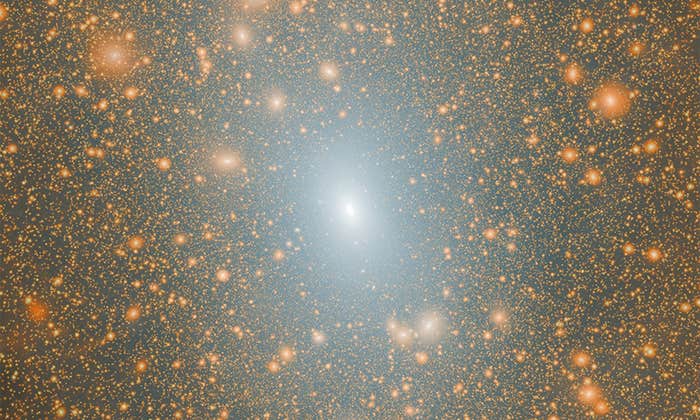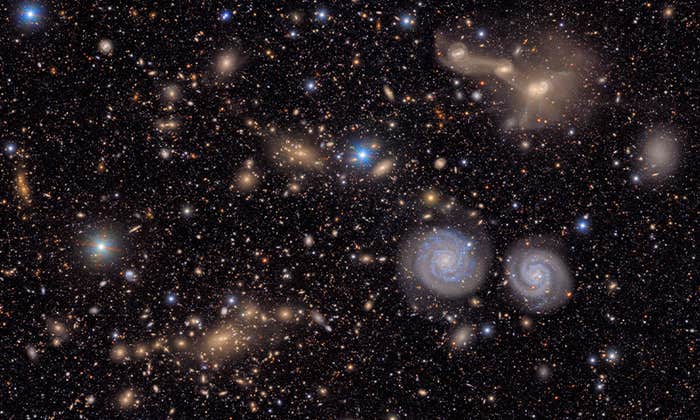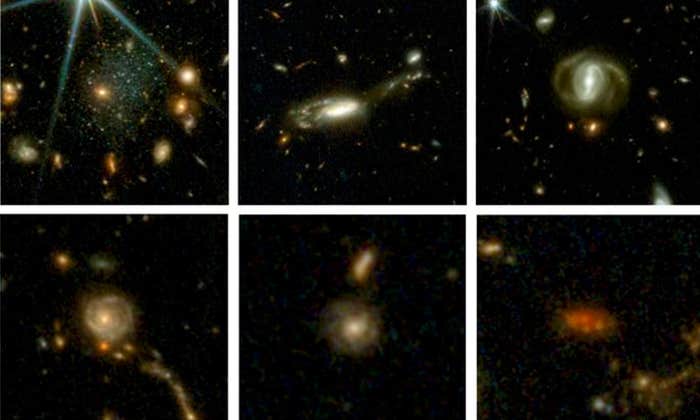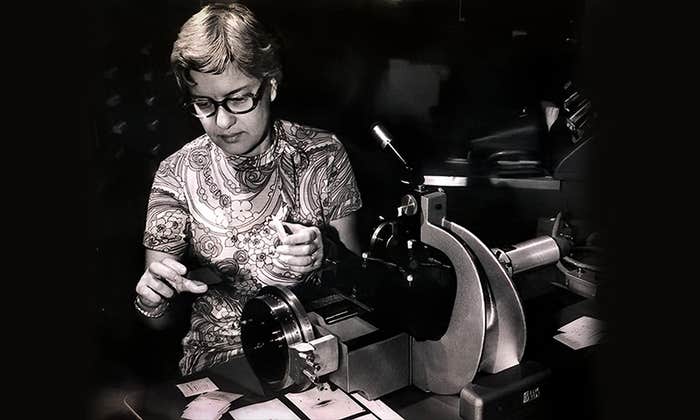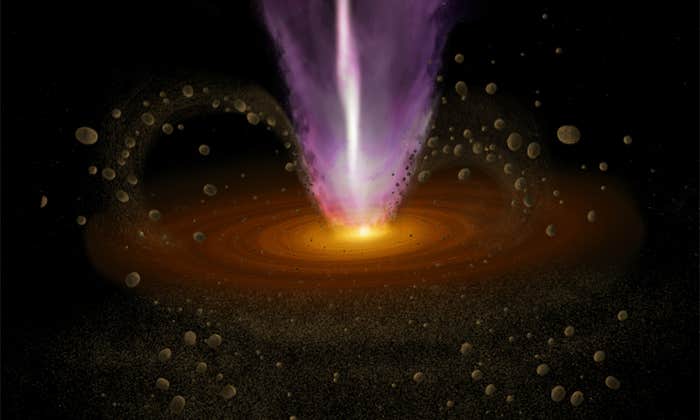Leading off this week’s chapter of Nautilus, physics writer Michael Brooks carries on a playful, imaginary conversation with Jerome Cardano, a crazy-bold 16th-century scientist, inventor, and astrologer (it was, after all, the 16th century). Brooks writes that Cardano created the first theory of probability, and discovered the square root of a negative number, something we now call the imaginary number and a part of our understanding of how the universe holds together. Cardano pioneered the experimental method of research in areas as diverse as medical cures for deafness and hernia.
We’ve revisited other amazing, iconoclastic scientists in Nautilus, notably Cornelis Drebel, who in the 1600s invented an oven thermostat, submarine, spectacular light shows, and may well have been Shakespeare’s model for Prospero, his noble sorcerer in The Tempest. The audacious Renaissance inventors got me thinking of pioneering astronomers who first wondered about the stars in the night sky and transformed science and “the human endeavor,” in the words of Edwin C. Krupp, director of Griffith Observatory.
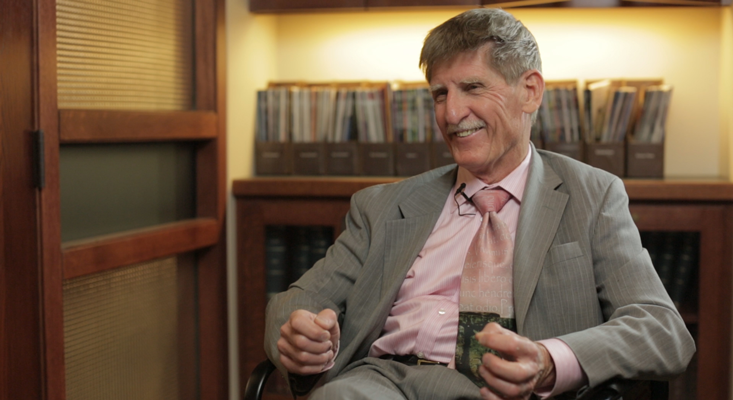
I had a blast interviewing Krupp a few years ago at his Observatory office, perched atop Mount Hollywood, overlooking the rampant Los Angeles sprawl. My favorite parts of our conversation were Krupp’s insights into the rebel Galileo and how ancient people connected to the sun and stars. Science made all the necessary corrections to people’s beliefs, but something in our relationship to the cosmos got lost along the way.
This year Krupp is celebrating his 45th year as director of Griffith Observatory. When I met him, he was sporting a pin-striped gray suit, pink shirt, and a pink tie with a photo of Stonehenge on it. He was endlessly enthusiastic about astronomy, by turns sarcastic and reflective. About his lifelong career at the observatory, he says, “It’s a small miracle to turn visitors into observers, to put them eyeball to eyeball with the cosmos.”
How does the story of astronomy begin?
Astronomy is almost nothing but light. And the story of how that light has been perceived and used begins with the eye. Think about what the eye gets from the sky. In the earliest times, you get some information about brightness. You get some information about position. If you watch over a period of time, you get some information about motion, and you get just a little bit of information about color. That’s it. And yet from that information our ancestors contrived tools. They made a tool out of the sky to do things like track the seasons. They kept track of the passage of time because people and things need to be in certain places. Coordinated activity requires both timekeeping and calendars.
How did people in prehistoric times relate to the night sky?
Our ancestors in deep prehistoric times had a human connection with the cosmos that is probably deeper, more abiding, and more deeply felt than we have today. People in antiquity saw the connections between things. They saw light from the sun but they didn’t know how it was formed. Nobody was talking about thermonuclear reactions in the core of the sun. But they realized the behavior of the sun had a big-time effect on the earth—on what the animals did, the plants did. The earliest calendars may have kept track of stars that appear in the predawn, or just after sunset. When a group of stars is visible, it means this animal is going to do this, the salmon are going to run, the deer are going to rut. Those are the connections that were in people’s minds. They had an integrated relationship with the cosmos. Now we’re at a greater loss. We’re trying to figure out how Earth fits into a cosmos that appears to have no limit. At the very least, it’s operating on physical laws beyond ordinary human experience; they don’t make intuitive sense and have to be examined mathematically. So maybe now we’re the ones with a far less integrated sense of our relationship to the cosmos.
The scientific revolution is rooted in a mentality that doesn’t rely on authority.
Give us an example of how ancient people read the stars.
We know the Quechua people in the Andes used astronomical observations to predict the weather. During the summer solstice the community would go out and look at the Pleiades star cluster to decide what their planting strategy should be. The reason is because the Pleiades vary in their appearance from year to year. Sometimes the stars seem very bright and tight. Sometimes they seem a little muddier. And you think, “What is going on here?” The stars are not controlling the weather. But now we know from satellite observations what these folks have been doing for centuries. They are tracking the effects of an El Niño, which is part of the great change of temperature of the Pacific Ocean basin. An El Niño creates cirrus clouds, which are fundamentally invisible, but they alter the appearance of stars in the sky. So the Quechua were observing what El Niño is doing and making decisions based on average temperatures and rainfall.
What’s your astrological sign?
I happen to be Scorpio.
Today we make fun of astrology because it’s not science, but how did it lead to astronomy?
It’s certainly appropriate to say astrology was merged closely with astronomy. Even in antiquity, if you could separate them out, you would say both are just the basic gathering of the data and the manipulation of data to reach broader conclusions. People saw the seasonal behavior of the sun and stars, the tidal behavior of the moon. So it’s understandable that people in antiquity would come to the conclusion that what’s happening in the sky has an effect on Earth.
But this is what’s interesting. You can go to ancient Maya, whose people practiced astrology, to the Mediterranean, where astrology was rooted in Mesopotamia, which picks up stuff from Greece and Egypt, and then to China. Every one of those cultures puts astrological rules together in a different way. It’s the same sky but they read it completely differently. So if you could be a cross-cultural astronomer 2,000 years ago, you would know right away the jig is up because all these guys can’t be right. And they aren’t right. The rules of astrology are not physical laws. You have to recognize that for people today who invest in astrology, this is a matter of belief. Astrology is truly a matter of faith and I don’t believe terribly in criticizing people’s religion.
You’ve said, “If Galileo had never pointed a telescope to the sky we wouldn’t have cell phones.” What did you mean?
Galileo turns out to be one of those personalities who actually did stuff. He didn’t just talk about it. He experimented and didn’t take for granted the things that were said to be true. He tested. The heart of science is testing your knowledge. You understand your knowledge is limited. You understand that what you might successfully discern today could be overtaken by subtler discoveries later on. The scientific revolution is rooted in a mentality that doesn’t rely on authority. Galileo had that.
Every one of those questions reflects the bankruptcy of the human brain.
When Galileo made a telescope, he did this remarkable thing. Instead of using it like a military device to look at ships, he uses it to look at the sky. He points it to the moon and he sees the surface is irregular, there are features on it. He looks at Jupiter and he sees it’s accompanied by four other objects that are moving systematically around it, like planets in a solar system. He looks at Venus and sees it changes as it’s moving around the sun. He looks at Saturn, and his telescope isn’t good enough to make out the rings, but he sees that there’s something there. We take all of these discoveries for granted today, but at the time, it was like the universe was a whole new place. Galileo leverages that information, that sense of discovery, into a whole transformation of human endeavor.
Ultimately you have to link Galileo’s celestial observations to the laws of motion, to Kepler and Newton, who was able to define the mathematical way the forces work to make all this happen. So it’s really a short jump from Newton’s laws to putting satellites in orbit around the earth to smart phones.
You seem very inspired by Galileo. Was he in fact an inspiration for you?
I’m inspired by anybody who makes a jump and does the unusual, who insists on pursuing an inquiry to wherever curiosity and compulsion lead.
What would you like to see astronomy accomplish?
I have a very Darwinian sense of things, a sense that the evolution of the cosmos just proceeds and things will develop and change as they do. Your question suggests expectations, and I think it’s imprudent for us, as very small specks in the cosmos, to have expectation. What we should have is gratitude. We should be delighted that we get to look and get to know. We never get to know everything; we don’t get to see everything. But we’re in a very privileged position, and continuing that enterprise—because that’s just what people do—is just fine with me.
Why are we in a privileged position? Because we have consciousness?
Consciousness is clearly part of the picture. That raises a set of issues that are beyond my pay grade. It’s interesting of course that the universe has evolved creatures that have consciousness and observe the cosmos. It makes you wonder, What’s up with that? What’s the endgame? Is there one? And every one of those questions reflects the bankruptcy of the human brain. When you start asking questions like that, you think the big brain is able to know everything. In fact, it’s a device for filtering information, and its ultimate function is to help us survive. As long as it keeps doing that, I suspect, we’ll be around with these entertaining questions. But I can’t tell whether our big brain is just extra luggage or part of an essential commodity.
Kevin Berger is the editor of Nautilus.





















